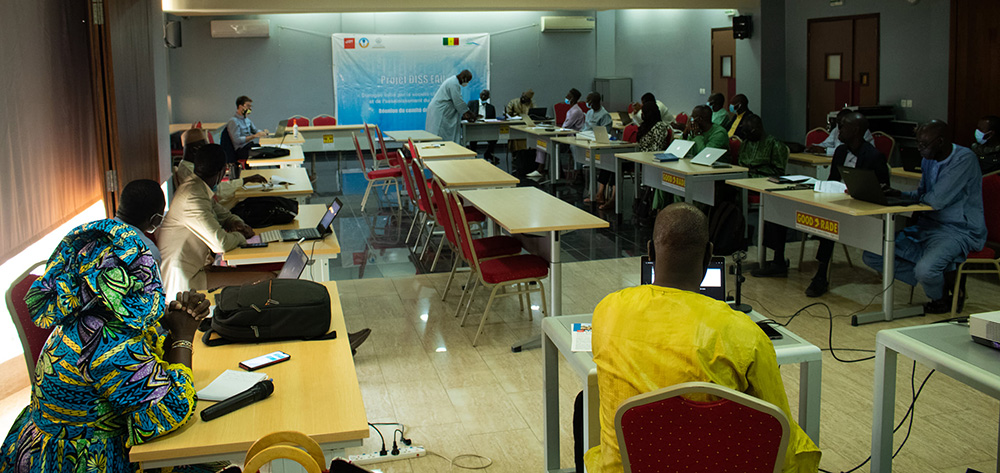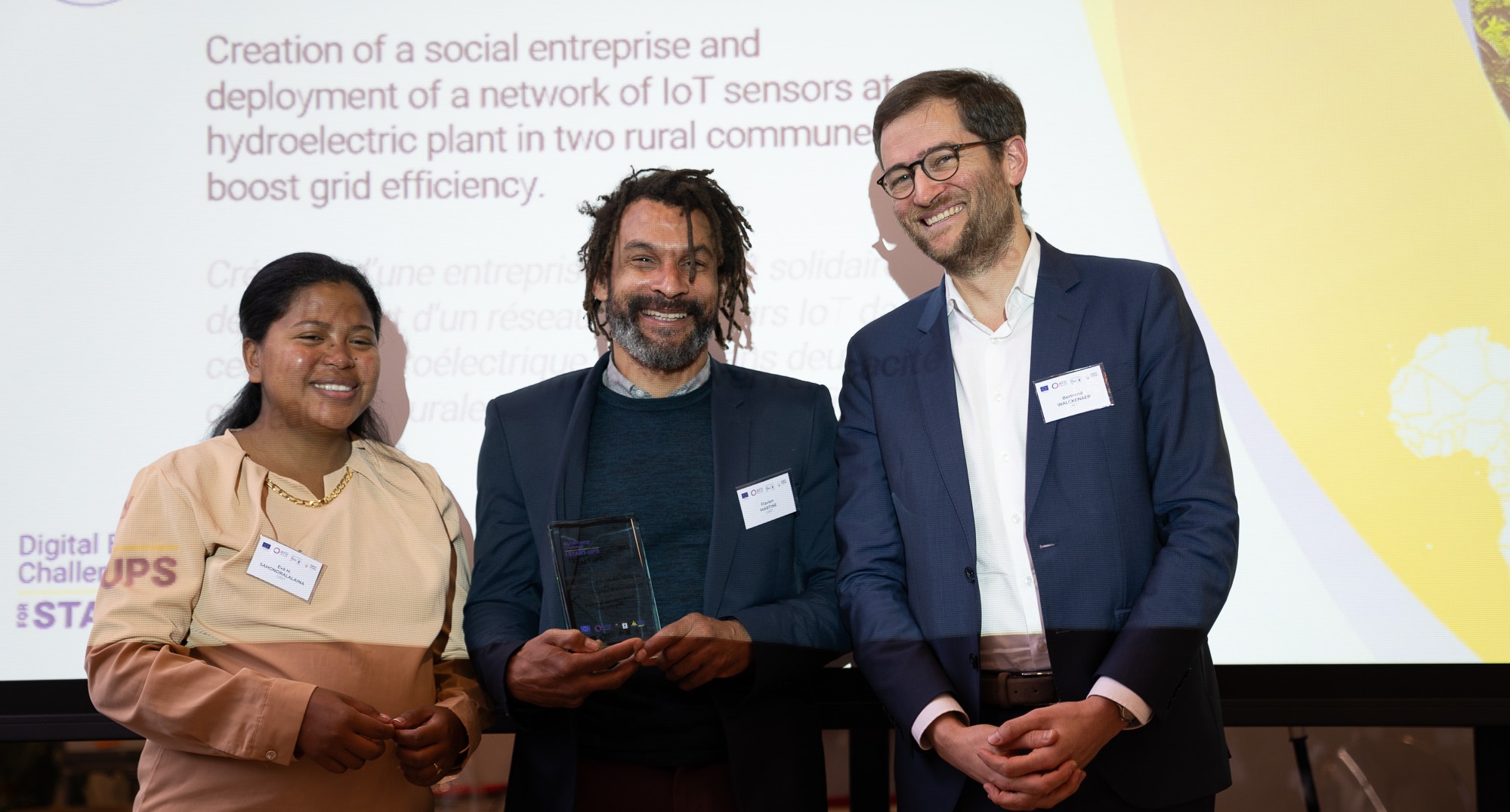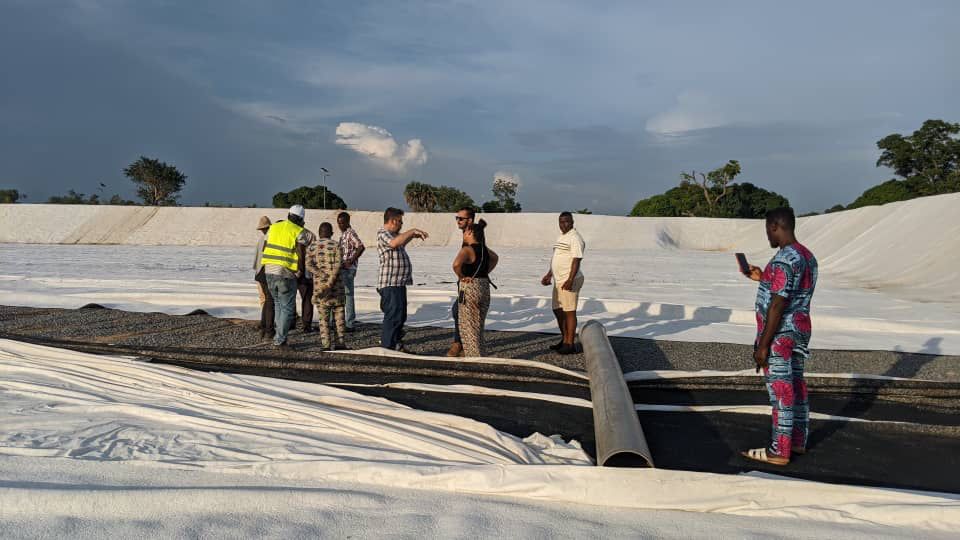“F’eau ba deg’eau”, which means the understanding game in Wolof, is a game that was designed as part of the project for Dialogue initiated by civil society on water and sanitation (Diss’Eau), being conducted by GRET and its partners (POSCEAS, Gaston Berger University in Saint-Louis) in Senegal. Given the lack of involvement of local authorities and users in the management of some local public water services and the absence of dialogue between stakeholders in these services, this tool aims to foster participation at all levels.
Since 2014, the water sector in Senegal has undergone profound changes, marked by the reform of rural hydraulics with the creation of the Office of rural borehole management (Ofor), in charge of managing rural hydraulics, and the implementation of delegated management of public drinking water services in rural areas. Yet, the application of the hydraulics reform was contested by users andlocal authorities. These stakeholders regret and denounce the fact that they were not involved in the process, and the lack of improvement in quality of the delegated water services, despite the fact that this was presented as a central point of the reform.
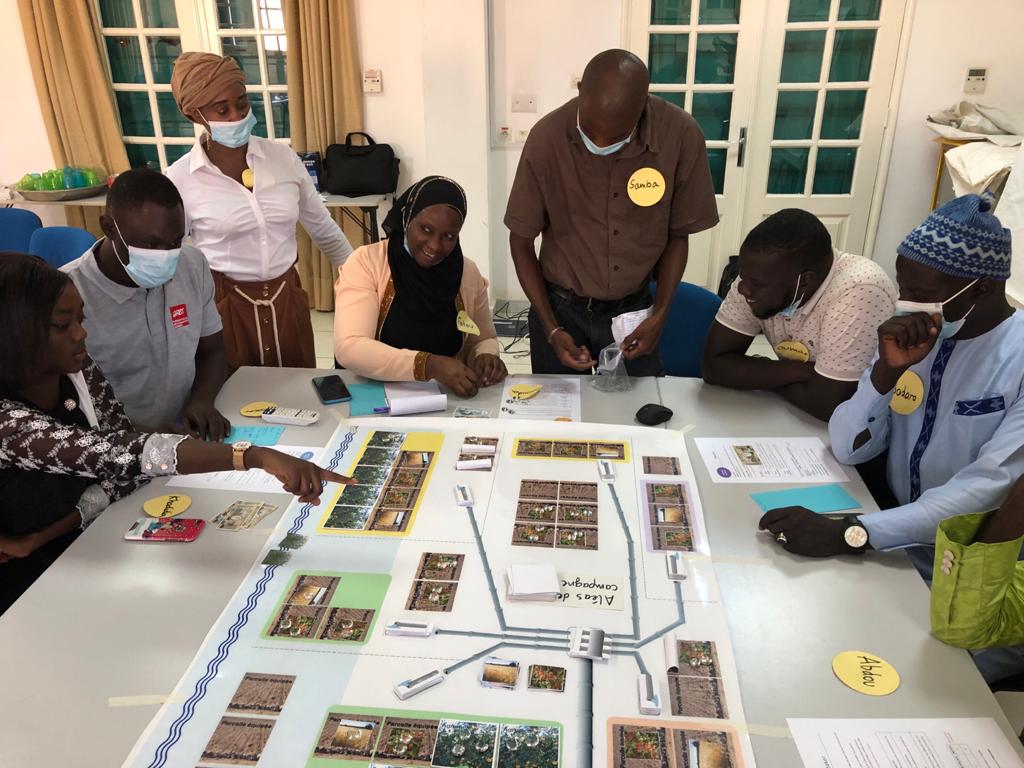
A very useful innovation
The Diss’Eau project is working in this context and its teams are testing innovative approaches to foster more inclusive, more appropriate and more sustainable governance of water and sanitation services. The design and use of the game drew inspiration from the delegated drinking water services in Gorom-Lampsar (Saint-Louis region) and in the Thiès region, and from other situations observed in Senegal.
The game places stakeholders involved in water service management in real life situations with a view to stimulating their interactions, highlighting their interdependencies and contributing to improving the management of this common. The game makes it possible to represent the various procedures around the delivery of a water service in rural areas in Senegal in a dynamic, pedagogical manner. It also enables simulation of problematic situations affecting the quality and the quantity of water supplied, and support for concertation between users and delegated management. Lastly, the participative one-week workshop to co-design the game brought various sectoral stakeholders – who had not engaged in dialogue together for many years – together on an equal footing.
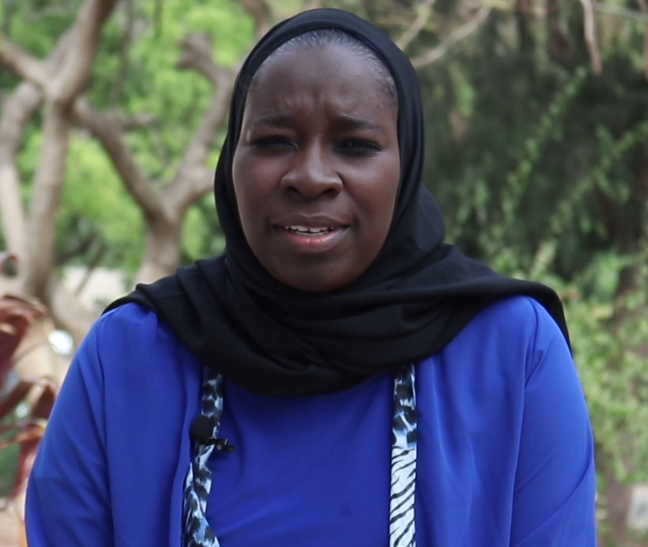
“The game is very instructive, it taught us a lot of things that enabled us to practise locally in order to replicate it at national level. Discussions were productive, people with different profiles working in the water and sanitation sector were present. This enabled us to finally hear everyone’s opinions at last.”
Mame Awa Fall, head of the Marketing division at the Senegalese National sanitation office.
A game depicting the reality of a water service
After being developed in partnership with Lisode and Cirad, the game was tested during a five-day workshop bringing together some fifteen national and local water and sanitation stakeholders. Field visits organised in Saint-Louis and Thiès made it possible to consider realities to represented in the game.
The game is built like a drinking water network supplying approximately 3,000 people. On a board, it represents the supply and distribution system of Delta’eau (a fictitious private operator). The latter supplies water to seven subscribers possessing a tap equipped with water meters, and to two community connections (a motorbike washing station and a school). Various common or unusual situations feature on the events cards picked by each player, and subscribers are free to make choices (on investment and payment) that have an impact on their water supply. Other specific situations are also depicted in the game, such as the emergence of clandestine connections or a user’s loss of water connection. In these conditions, each player must reach the objectives set for them in the role play sheet, while the game leader ensures the game runs smoothly.
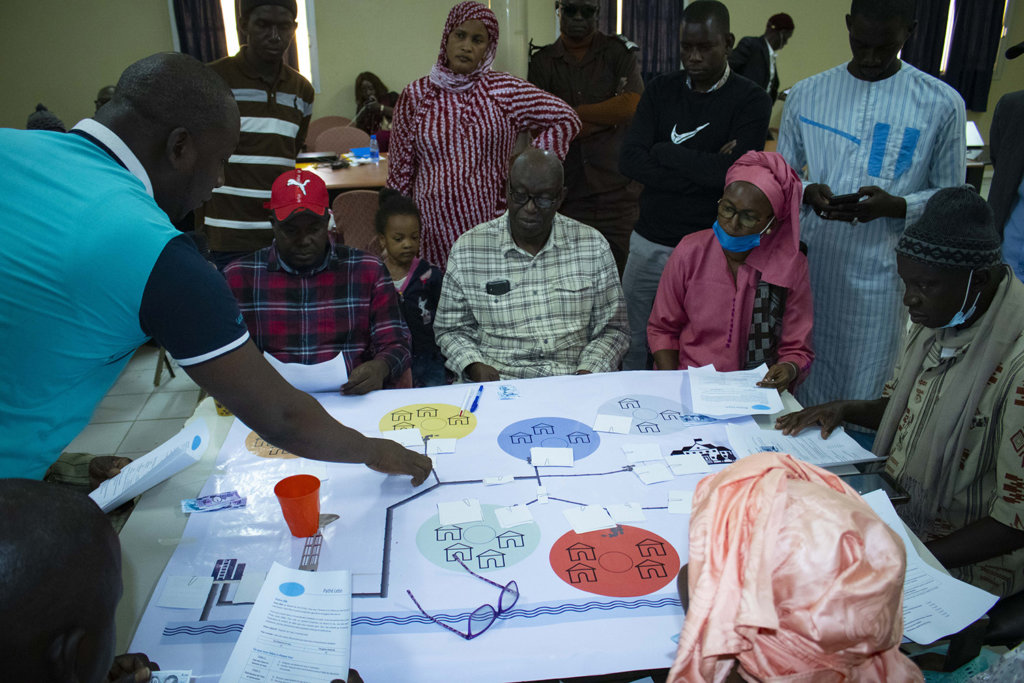
The F’Eau ba deg’eau game was presented and followed with great interest by a diverse audience at the World Water Forum in Dakar. GRET is hoping that the game will make it possible to open up the governance of water services in rural areas in Senegal and elsewhere, and that the recommendations made at grass-roots level will enrich sectoral reforms. The creation and use of serious games open up new prospects in terms of participation, dialogue and awareness-raising around various subject areas.
The project is funded by l’Agence française de développement and Sedif

